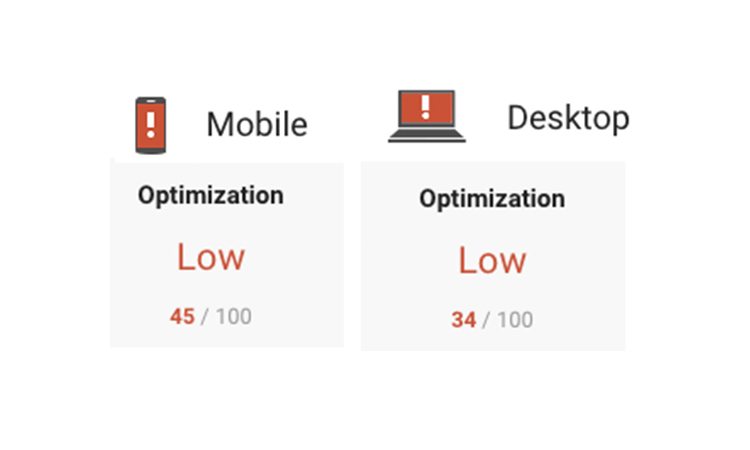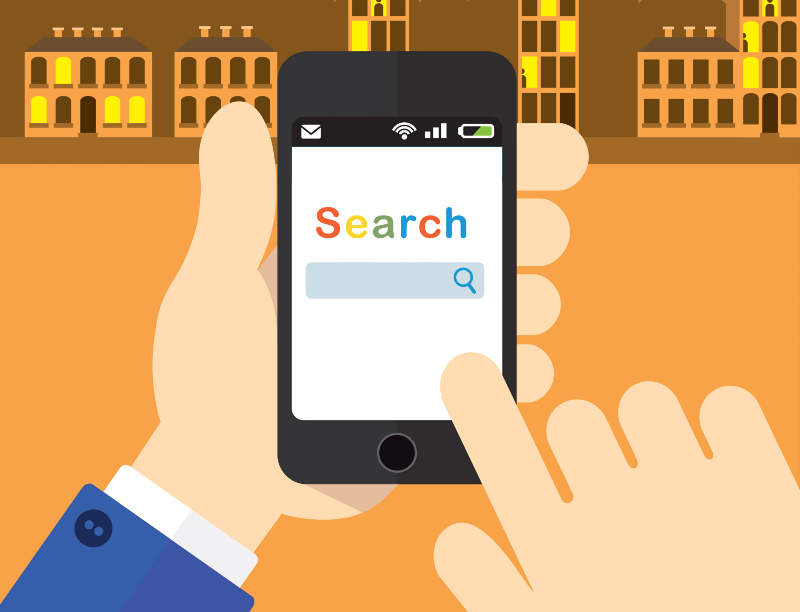
Social media plays a crucial role in the success or failure of a digital marketing campaign. Yet there are some marketers who don’t quite succeed with the use of social media to promote products. It’s because they don’t give enough consideration to another important conversion factor called user experience. No social media marketer will ever succeed in winning the interest of potential customers if they fail to provide a satisfactory user experience. The simple explanation for this is: No matter how flawless your social media marketing is, you will see minimal conversions if your website is slow to load.
In this age of digital technology, speed is considered one of the most important aspects of getting what you want from the web. The lightning speed of giant websites instills in people the thought that this is the proper way for all websites to load. In fact, 70% of digital consumers declare that they consider page speed as a determining factor when they make up their mind whether they will buy from a website or not.
Sadly, many online marketers don’t give due attention to page speed optimization even if they are aware of its influence. These facts can tell a lot of reasons why low page speed is killing social media marketing:
- A recent study shows that 85% of landing pages are slower than Google’s recommended speed of 5 seconds or less.
- The size of the average web page has doubled over the last three years. Yet connection speeds have not improved.
- The average time a web page needs to load on a mobile device is 15 seconds. This prompts users to abandon a web page to look for a faster one.
- 36% of users say they don’t want to return to slow-loading websites.
- About 50% of users declare that they would attempt to reload a page, hoping that it will load faster the second time; another 22% reported that they abort any attempt to access a site that fails to load; and 14% confess that they would transfer to a competitor’s site if a website fails to load within five seconds.
- 81% of marketers are aware that page load speed has a big influence on conversions, but improving it is not one of their priorities.
Aside from its effect on the marketing aspect of a business, page speed can also have a direct impact on:
Search Engine Rankings – Google considers website speed and easy accessibility as a ranking factor. If your website isn’t able to deliver a considerable speed, searchers won’t find your site on the top pages of search engine results.
User Experience – Page speed matters to all users. The relevancy of a website is not the only determining factor for a great user experience because relevancy becomes useless if a web page fails to load.
Engagement Metrics – Click-through rates, the time users spend on your site, bounce rates, and the number of pages users see per visit are engagement metrics. All of these are directly connected to page speed. Search engines consider these factors when ranking websites.
ECommerce – ECommerce websites can certainly feel the negative impact of slow-loading pages. This is because potential customers tend to look elsewhere if a landing page fails to load.
Crawl Budget – search engines use spiders or crawlers to index pages that qualify to appear in search engine results pages. But since every website is allocated a crawl budget, sometimes spiders are not able to reach websites because of their slow page speeds. This can result in slow indexing of pages even if they have been updated.
The Advent of Mobile Search

As we all know, mobile devices are dominating the internet these days. It is, in fact, the easiest and fastest way for a potential customer to interact with a seller. Slow websites are certainly no match against speedy competitors in engaging customers. They can snatch every potential buyer because of their ability to load fast. According to statistics, potential buyers tend to abandon a page if it can’t load in three to five seconds. This means every eCommerce website must be mobile-friendly and fast enough to be able to cope with the changing demands of the market.
Final Thoughts
Page speed is certainly an important element of social network marketing, not just because it influences search engines but because it gives a website the ability to provide users with a worthwhile experience.
As a website owner, manager, or operator, you can never ignore page speed simply because of its importance to both search engines and users. Treat it seriously, and it will lead you straight to your target audience.
If your social network marketing is not generating the results you want, your website could be too slow and not able to delivera satisfactory user experience. If users aren’t able to access your website after clicking through your social media ads or links, they tend to leave and even check out your competitors. When this happens, you’ll certainly lose a lot – you’ll lose your ranking, your traffic will be gone, and your revenues will be taken away. After going a long way to fulfill your online marketing objectives, you must not allow this to happen.
By achieving Google’s desired website speed and delivering a satisfactory user experience, you can give your website the ability to attract search engines and delight potential customers as well. Make it easy on your side by allowing website development and digital marketing professionals do the work for you.
At Muzeum Marketing, we work with your plans and objectives in mind. You can be sure to see them come to fruition in the days to come. Tell us your plans, and we will translate them into elements that can increase your website’s traffic, engagements, and revenues. Remember, we’re just a call away.






